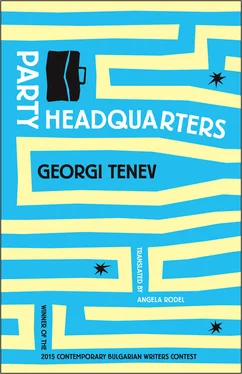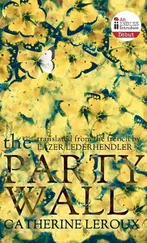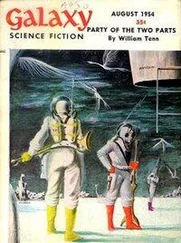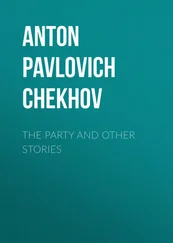From control point CP-9 to control point CP-8
I had this dream with my eyes wide open: wilderness orientation.
Pioneer camp. A Spec Ops orienteering race through the woods, the thick grass in the rain. Xenon, the camp dog, a big, black German shepherd, zigzags left and right, but — thanks to his border-guard genes — doesn’t bark.
We run around using compasses to search for invisible lines, azimuths, hidden among the trees. Once we guess the direction, we discover orientation signs, concealed by pine boughs. A cardboard sign reading “CP-8”—there is a small map and a symbol, our goal is marked with a colorful arrow. Around my waist, under my T-shirt, our team’s flag is twisted and tied into a knot. We pass it around, taking turns carrying it. The fake silk soaks up the childish salt of our sweat. Now, in my memory I notice that despite the sweat and grime, my body gave off no scent. And so.
. woods, pines, firs. Cedars. Sharp green needles and wide leaves. We run over the silent moss, in step, our knees and shins scratched from the still-soft milk teeth of wild roses, of blackberry bushes. Our elbows and shoulders stinging from the little whips of jutting branches, the thick hazel trees. And all of a sudden amid the bottomless green: a dark blue spot, movement with a persistent color.
Strange white shoes, hair swinging in a ponytail. One moving spot, and another one right next to it. I saw her.
Wilderness orientation — from CP-7 to CP-6
I lost sight of the vision. The ghost born of entangled, blinking eyelashes flew away quickly, like a bird amid the branches. At least that’s how it seemed to me. It’s just a game, there’s no real danger here. Pioneer camp, a children’s war, the running continues.
We reached the river — we crossed without fording, with quick steps across the stones. Under the thin rubber soles of your tennis shoes you can feel the edges of the rocks, splashes of water cool you off momentarily. And again running, quickened breath — where is the mirage, the blue spot on green infinity? The bouncing braid, the white heels of the odd shoes, which still had their strange treads — look, there they are here — leaving unfamiliar tracks.
We reach a long curve, encircling the slope bristling with trees. The dank shade raises goose bumps on our bare arms. Who is waiting for us around the corner?
An April rain begins to fall.
Raindrops glistened through the sunshine, fluff floated from the poplars, crossing into the rain’s line of fire.
My eyes swim from so much blonde hair, girls in blue blouses. My head starts to spin. A strange taste invades my lungs, the scent of ozone — what does ozone smell like anyway? — at least that’s what I tell myself now as I try to grasp something more, a greater meaning and importance held in those last few moments.
And the question I add to all this today: why didn’t anybody call out to us, tell us to come back? So many secrets in such a short time, in the seconds before I fainted for no good reason.
“From exhaustion and too much running,” as the Pioneer camp doctor dryly declared afterward. Okay — before I dropped from exhaustion into the soft blades of the tall grass. Before the kaleidoscopic reflections of the girls’ ghostly silhouettes accumulated into a single body.
The sky above my head widened, filled my eyes, and I fell into it, fell into the rain, into something huge and blue, not black like they usually say the color of collapse is.
“From exhaustion and too much running,” repeats the doctor and gives me an injection in the arm.
“No!”—I feel like shouting — but my voice slips into weightlessness at the edge of my throat.
“You didn’t see anything,” the comforting voices repeat, the needle pulls out of my skin.
“It was nothing, nobody, you’re imagining it,” I hear, or rather dream, that they’re speaking to me.
“Shh, shh, go to sleep”—the last thing I can make out is the voice of the scout leader: “Go to sleep, dream”—the warmth of a hand on my chest. The warmth of the sun still at its zenith, while I fall asleep too early, exceptionally early. A cotton ball with a drop of rubbing alcohol on it raises a silent toast to the tiny puncture where the mixture of beneficent poison and healing sleep has entered. Time passes, the minute and hour hands can’t hold me. The clocks on all sides of the tower spin. Now I can see in all four cardinal directions, too, but I can’t seem to move in a single one of them.
Uranus
The control point is the smallest possible space that can contain the ultimate goal — or just the temporary goal — of this leg of the race, the searching and finding, the blazing of a trail in this thick impenetrable forest. So what’s the function of the meadow, then? A place to rest and to play or a ruse, a trap set by strange forces? Clever bait to draw you out of the forest and into the open, so that the eyes of spy satellites can see you from invisible heights? Or so the radioactive rain can fall on you?
We had no way of knowing, it wasn’t marked on the map and no dosimetric lines were drawn on the orienteering stencil — a few days earlier, a thousand kilometers to the north and east, Reactor No. 4 at Chernobyl had exploded, under the watch of the Fifth Shift.
The pioneer camp commander later summed it up with his favorite saying: “Shit happens.”
Letter to an Unknown Comrade
I know, my dear, little, unknown Soviet and Ukrainian comrade, I know, but please — don’t finish yet, tell me again. Tell me how it happened once more, tell me, even if it means repeating yourself and wasting yet another whole page of graph paper. For me it’s important, it’s so important, you can’t even begin to imagine.
I want to hear about the banks of the Pripyat River — I can see its water boiling, I understand. But more about that later, it’s still too early, April hasn’t arrived yet, nor the beginning of May, the water is calm. Longer ago and further back, before spring and before winter. Tell me about the summer, the past, as if there never was and never will be one like it again, as if it were the last. As if we are running for the last time with pounding carefree steps toward the banks, toward the water, and it flows smoothly from the tributaries and empties out into the Dnieper. Show me around the flat terrain, across those 106,000 square kilometers, geographically, like a straight-A student. There, where the water-drainage basin stretches past the nuclear power plant. Scribble on the map, all along the river’s 748 kilometers with a black marker. Give me a little more time. I’m playing here in the grass, it’s raining, my dear little unknown comrade from the Pale between Ukraine and Belarus — I’m not even exactly sure where you are, on the map in my textbook that little corner is too small, between two holes of the spiral binding that hold the pages together. So tell me about it now, give me time to stand here a little longer, in the rain.
In return, let me admit that you are now extending this moment in Paradise — she is blonde, my little Soviet comrade from Ukraine, from Belarus, she is a blue T-shirt and blonde hair in braids and shoes with a strange design on the heels. Tell me whatever you want, don’t make me ask, my lips are busy, my words are busy. I put a lot of effort into my Russian, see how beautifully I write to you with loops and hooks, correctly using the instrumental case and the backward “e,” right?
While here with her, we can’t utter a single word, so we just move, we move and breathe.
Don’t ask me why or what for, just close your eyes and tell me, like you used to write me. Tell me again about the Pripyat River, about its waters. I know they’re brown because those waters flow from Geography , from peat-bogs. And if you want to swim, you’d better be strong because the current will sweep you away. After swimming, a coating like chocolate covers your skin, it tightens, dries out, and bakes in the air — if you pick at it with your fingers it squeaks. Like a festive Misha the Olympian, one of those marzipan bears sold as an Olympic souvenir. Of course, you know that it’s because of the swamp acids, which must be good for you — even fish swim in and breathe them. But after the disaster they will turn into coagulating agents, as the nuclear physicists call them, since they are excellent conveyors of radioactive particles, the leftovers from the breakdown of the spilled nuclear fuel, God damn it, as the nuclear physicists, or “nukies,” swore through their teeth. You are probably the child of a nukie, my dear little unknown comrade — otherwise what would you be doing in that city built in the middle of nowhere? In the middle of the Pale, there and where else in that emptiness would you be born, at that unremarkable age, the same age as the fourth reactor, the pride of the golden five-year-plans for energy construction.
Читать дальше












